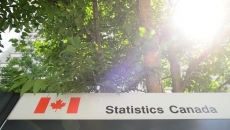VANCOUVER - COVID-19 modelling released by the British Columbia government shows challenging days ahead for the health-care system even though the latest wave propelled by the Omicron variant may have peaked in parts of the province.
Join Adrian Dix, Minister of Health and Dr. Bonnie Henry, BC’s provincial health officer for an update on COVID-19. #CovidBC https://t.co/TDgtwTrqIl
— BC Government News (@BCGovNews) January 14, 2022
Provincial health officer Dr. Bonnie Henry said Friday the wave has spread faster than previous ones and their research shows the top of the latest surge was likely reached last weekend.
However, the data also shows hospital admissions are expected to peak in the next week with a lag time of about six to eight days after community transmissions, she told a news conference.
"And that is going to be a challenging few weeks on our hospitals," Henry said. "The peak is coming."
The figures showed a decrease in infections in two health authorities, Vancouver Coastal and Fraser Health, with a levelling off on Vancouver Island and a slight rise in the Interior.
Officials looked at various indicators including hospitalizations and testing for COVID-19 in wastewater to support the data.
Henry said infections in Vancouver Coastal and Fraser Health, where the majority of people live in B.C., are driving the epidemic curve.
"Those have peaked around the 1st of January and are starting to go down, so we think that we hit the peak of community transmission in British Columbia probably this past weekend."
The data also showed actual infections could be three to four times higher than the official daily figures because testing capacities have hit their limit in the province.
Restrictions put in place on gatherings, events and facilities such as gyms, fitness centres and dance studios helped in levelling off cases, Henry said.
The limitations remain in place until Jan. 18, when updated guidance will be given. When asked if there was a change coming to the restrictions, Henry would only say she would answer that question on Tuesday.
The modelling showed Omicron has displaced the Delta variant as the primary driver of infections in the community and in hospitals in less than six weeks, which is consistent with data around the world.
Henry said the province is seeing people in their 20s and 30s in hospital, and 70 per cent of those in critical care have not been vaccinated in the past month.
There has also been an uptick in hospitalizations for those who are 70 and older, Henry noted.
Hospitalizations for children have also increased this week, she said, with nine kids in the zero-to-four age group admitted for COVID-19, although none required critical care.
"But this reflects, again, the fact that this virus is spreading widely in our community, and how important it is for all of us around young people, zero to four particularly, making sure that we're vaccinated, to do the best we can to protect them from transmission."
This virus behaves like an upper respiratory illness among children and tends to trigger asthma and other airway diseases and bronchiolitis, she said.
The disease is mild among children and guidelines for them are changing as more is learned about the virus and how it affects them, she said.
Because the government has hit the limit on testing, families won't know if their children have COVID-19.
In December, Henry reduced the requirement to self-isolate after a positive for COVID-19 test to five days for those who are vaccinated and don't have symptoms.
On Friday, she had new advice for parents.
"If your children are ill, please keep them home. If they have mild illness, they can return to school when symptoms have resolved and they're feeling better enough to do usual activities."
Henry said she realizes that people want clear, definitive and unchanging guidance.
"But COVID is not allowing for that," she said. "The virus is changing, and we need to adapt as well."






